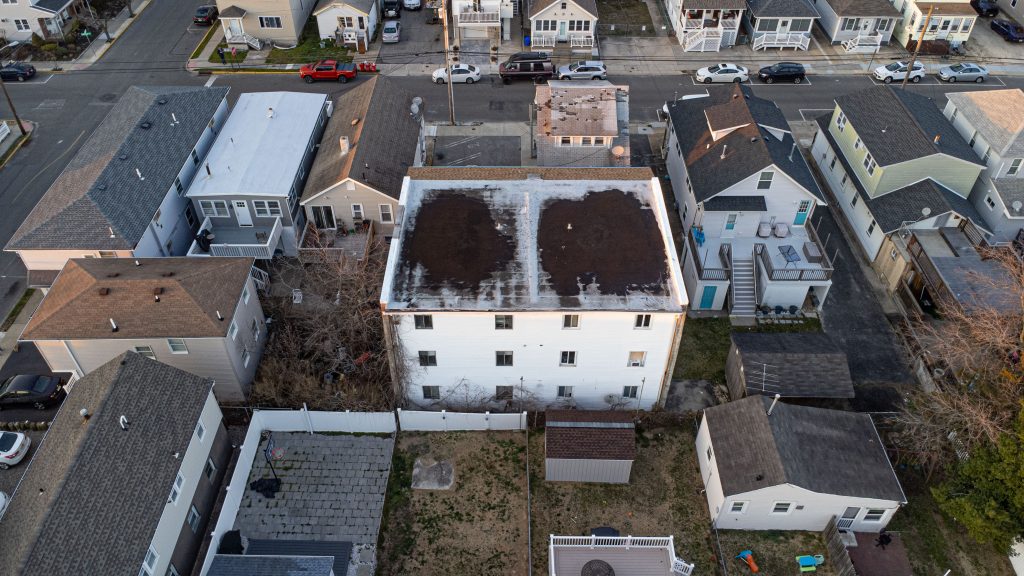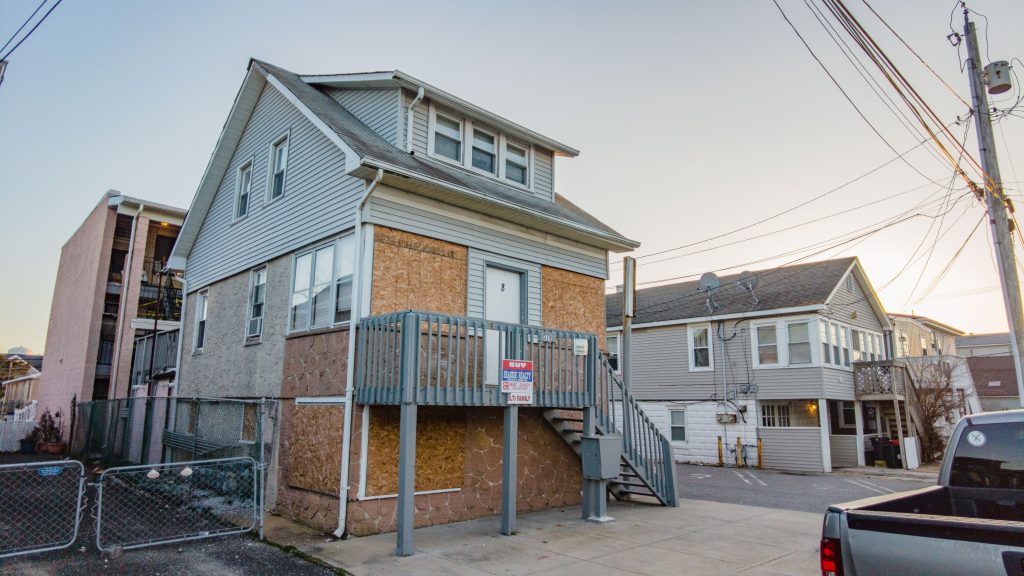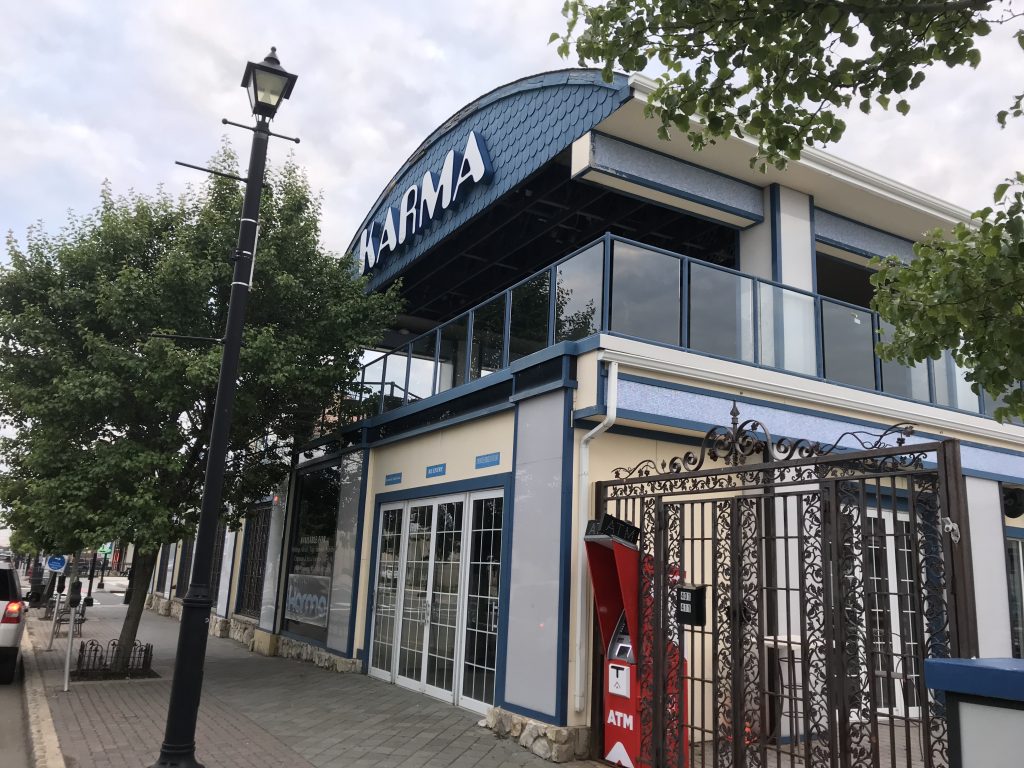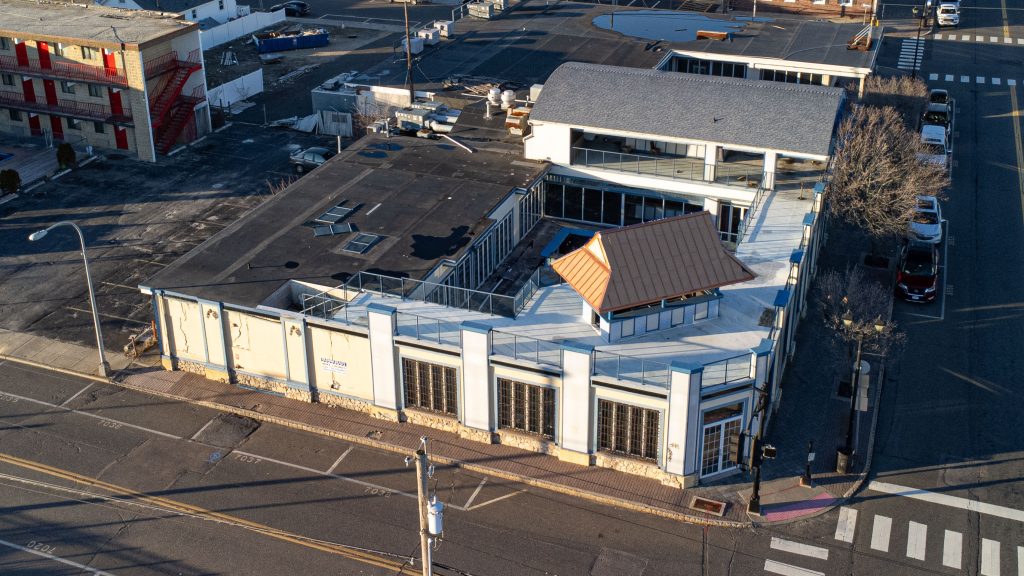The two properties that Seaside Heights officials had called to be formally designated redevelopment areas are one step closer to achieving the declaration.
The borough’s planning board on Monday night found the properties at 401 Boulevard (the former Karma nightclub) and 229 Franklin Avenue (the so-called ‘house-motel’ property) qualified under state land use statutes as areas in need of redevelopment. In a unanimous vote, the board recommended the designation to the borough council, which is expected to pass an ordinance codifying as much in the near future.
Shorebeat has reported on both of the properties over the last two weeks. The ‘house-motel’ property was acquired by the borough in October 2022 for $1.1 million, funded through a one-time state grant to assist the town in its redevelopment efforts. Hidden behind a small multi-family home with two units is a three-story motel which contains six units that were ultimately turned into long-term rentals. The site, officials have said, was often troubled with frequent calls to law enforcement. It also had myriad code and safety violations, from electrical wires on the ground, to chipping paint, to mold, to a lack of functioning appliances in dwelling units.
Tenants were still living in the building when it was acquired by the borough from its previous owner.
The Karma property has never come under public ownership. While the planning board resolution noted that the property could be subject to condemnation, it has changed hands since the redevelopment process began, and is likely to be redeveloped by its new owner. Professionals hired by the new owner appeared at a work session meeting of the borough council last week and pitched a major, high-end mixed-use project for the site that will gel with the overall redevelopment plan for the Boulevard corridor.
Under the state’s redevelopment statute, once an area is formally designated as being in need of redevelopment, the redevelopment agency – in this case, the borough council – can set detailed specifications for what is envisioned for a particular property, unique from the traditional zoning code. Prospective redevelopers submit proposals for the right to acquire the property (if they do not already own it) and develop it based on the council’s specifications. In some cases, redevelopers may qualify for tax abatement programs.

Advertisement

Ortley Beach & North Beaches
Landmark Ortley Beach Breakfast Spot Looks to Expand

Ortley Beach & North Beaches
‘Temporary’ 70-Foot Cell Tower on Route 35 in Ocean Beach OK’d to Return

Seaside Heights & Seaside Park
Beloved South Seaside Park Restaurant Will Remain Open As Developer Seeks to Demolish Block

Seaside Heights & Seaside Park
In Seaside Heights, A $50M Flagship Building Rises Over the Boulevard in a Famed Location

Police, Fire & Courts
Ocean County Sheriff Establishes Drone Command Center in Seaside Heights Amid New Video









